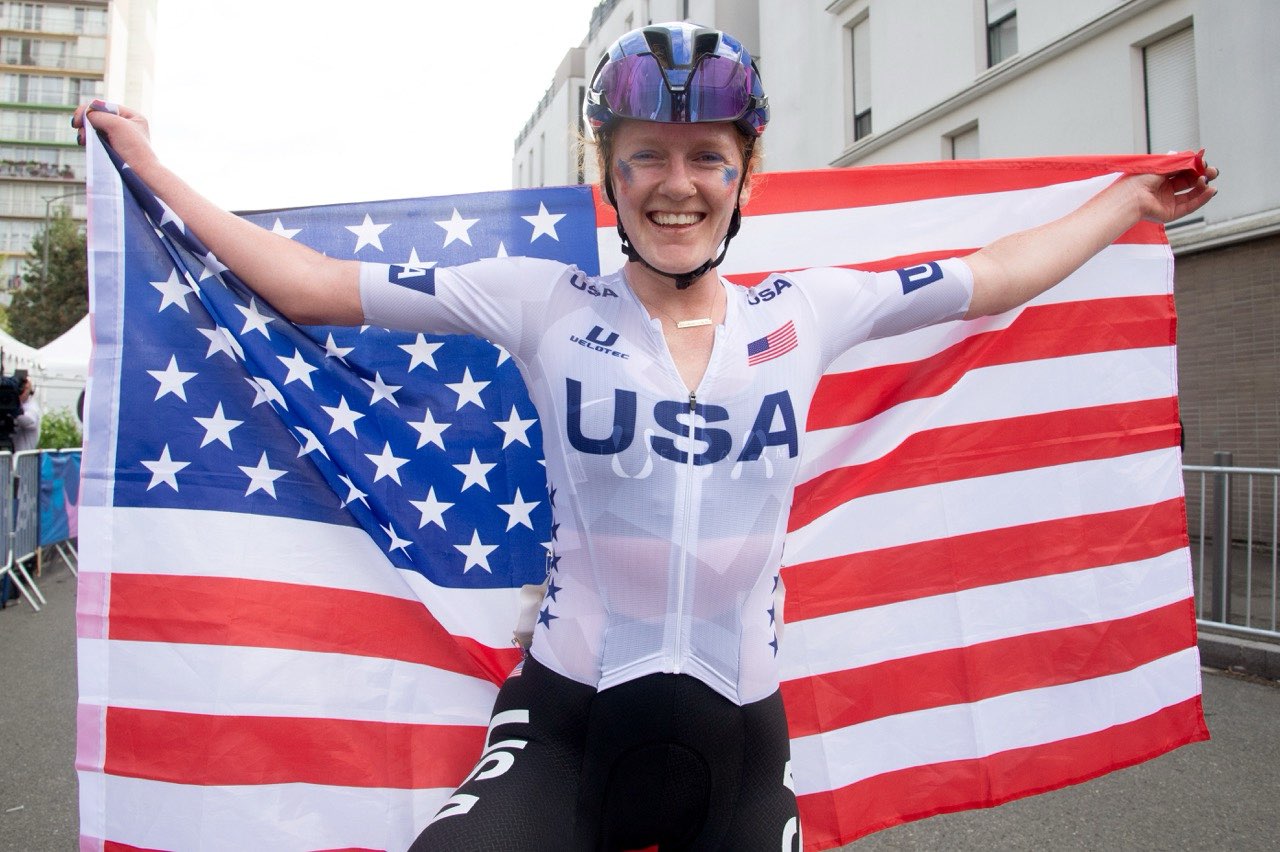
By Genna Duniway and Kyi Carino
Clara Brown graduated with the Class of 2017 from the University of Puget Sound and seven years later, she shared the podium at the Paralympics to claim a bronze medal. In the Paralympics, athletes are categorized by impairment so that they compete against others with similar abilities. Brown won her medal in the women’s C1-3 road race in Paris, France over the summer. Brown believes that her university experiences were essential to her cycling career.
Brown originally heard about Puget Sound through her brother and, after receiving the Matelich Scholarship, decided to attend. Now, reflecting on her experiences, she has realized that the small class sizes, opportunities to learn outside the classroom, community and open-mindedness of the university made her career possible.
“An element of my education at Puget Sound that stood out to me was all of the one-on-one interactions I had, whether engaging in conversation with professors, other students, or staff around campus. There was a common theme of emphasizing the human in all of us and treating each other kindly.”
When Brown was a first year, she joined the rowing team as a coxswain, where she steered and coached the boat of the men’s rowing team. She befriended another rower who encouraged her to ride, even though she was nervous because of her body’s limited function. Unbeknownst to her, this is when her professional racing journey started. Despite Clara’s safety concerns related to her spinal cord C5 and C6 level injury, this friend’s encouragement helped her develop an eagerness to ride that spring semester.
Upon her return to Maine in the summer, Brown built a bike at her local bike shop and brought it back with her to Puget Sound. During the fall semester of her second year, she “fell in love with riding.” Cycling through Tacoma sparked a love of exploration within Brown, and encouraged her to participate in an experimental learning program in the rural southwest studying geology and environmental policy, called Southwest Semester.
“I did not realize until much later how unique each of these experiences were to Puget Sound, and am so grateful I was able to take full advantage of them while I was a student.”
“Having so many opportunities to learn beyond the classroom was massively impactful on my learning experience,” Brown said. The trip taught her lessons about collaboration and support that she has been able to utilize ever since when traveling with her cycling team.
Brown explained that one of the core benefits of a small university is a close knit community. “I made lifelong friendships at Puget Sound. Even though I live on the east coast now, and most of my friends stayed west, I still keep in close touch and feel really supported by them,” Brown said.
Brown felt a sense of belonging at Puget Sound. For the first time, she was able to decide who knew about her disability — no longer feeling like her disability defined her. “It was my choice whether or not I shared it with people,” Brown said. However, pretending that she was like her peers made her realize all of the unseen ways her disability set her apart.
She said the support from her professors and peers was always gratifying, claiming that “all of them encouraged self exploration post graduation and finding fulfillment by being happy. It gave me the confidence to follow my passion for bikes and travel, and to not feel pressured into following a ’typical’ path.” Brown felt grateful for this support, explaining that she didn’t think she would’ve opened herself up to the opportunity of cycling had it not been for the encouragement she received.
Eager to incorporate more cycling into her life, Brown began working as a bike guide. It was during this job that she would make the connections that would bring her to the Paralympics.
As a bike guide, Brown met a member of the Paralympic Advisory Committee. She expressed that he “believed I had some talent on the bike, so he connected me with the director of US Paralympics Cycling.” The director of US Paralympics Cycling is a coach responsible for ensuring that an athlete or team is at peak performance. With a growing love for cycling and an extraordinary opportunity before her, the Paralympic Advisory Committee member sent an email. In two weeks time, Brown found herself in Colorado Springs for a talent identification camp.
Brown’s story serves as an inspiration not just for students at the University of Puget Sound, but for anyone who may be unsure of their future. Brown, who was on a path to law school, now stands as a testament that you never know what’s going to happen.
Brown’s unforeseen cycling experiences have led her to a bronze medal on the international stage. She partially credits the University of Puget Sound for her success and appreciates their encouragement of student opportunities that extend beyond campus, beyond the nation and around the globe.
“I can’t imagine a whole lot of other places encouraging that, let alone letting it happen.”
